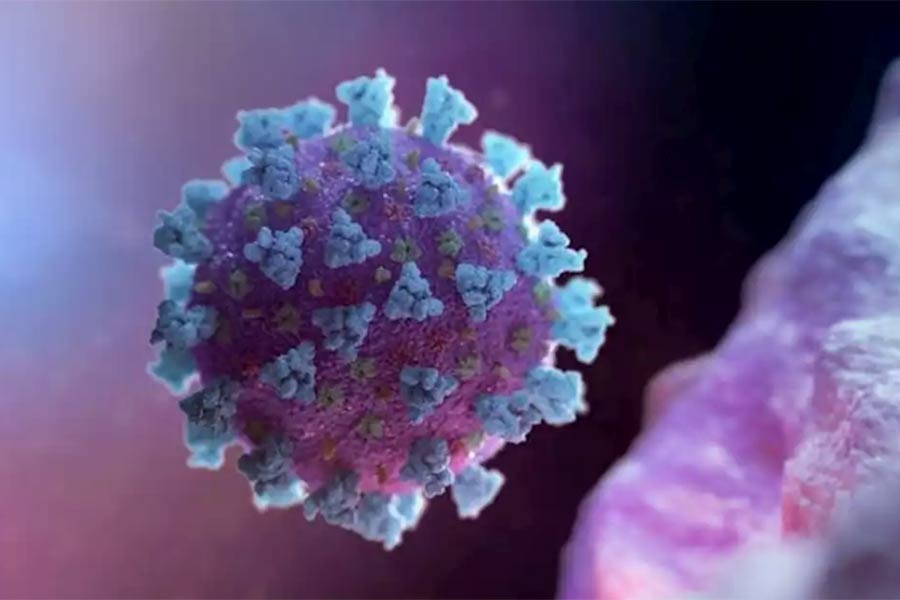The form of Covid-19 is changing much faster in Bangladesh than any other country in the world. The rate of its change in the world is 7.23 per cent, while it is 12.60 per cent in the country.
Bangladesh Council of Scientific and Industrial Research (BCSIR) revealed these in a press conference on Sunday.
Science and Technology Minister Yeafesh Osman and BCSIR Chairman Aftab Ali Sheikh were present in the press conference that revealed BCSIR Genomic Research Laboratory's Covid-19 Genome Sequencing Report.
The report said a total of 263 genome sequencing data from eight divisions of the country were analysed to prepare the report. These data were collected from 8 May to 31 July.
The press statement said the purpose of the study was to observe virus infection, mutation rate, genetic diversity, non-synonymous mutations and genomic phylogeny, and using results of the study to effectively prevent the Covid-19 pandemic.
It said the dominant variant G614 (the cause of glycine instead of aspartic acid in the 614th position in the spike protein) was found to be present in 100 per cent of the collected samples.
Analysis of 273 SARS Cove 2 genomes found mutations at 638 points, including 356 non-synonymous amino acid substitutions.
According to the available data, the annual mutation rate is 24.64 nucleotides.
Of the 103 nucleotide mutations in the Spike protein gene, 53 are non-synonymous amino acid substitutions, five of which are unique and nowhere else in the world. In 100 per cent of the collected samples, four mutations are repeated.
The statement said the report has been sent to 50 companies working on the Covid-19 vaccine, including the Chinese company Synovac Research and Development Company, the American company Moderna, and the University of Oxford.
BCSIR opined that the report will help in production of the Covid-19 vaccines, suitable for Bangladesh, and BCSIR will be proud to be a partner of any pharmaceutical company in this regard.
Its Covid-19 research is being carried out jointly with several reputed universities, including University of Melbourne, Australia.
BCSIR is one of the top five genome sequencing organisations in the world. It is also considered to be the second largest genomic research lab in South Asia.


